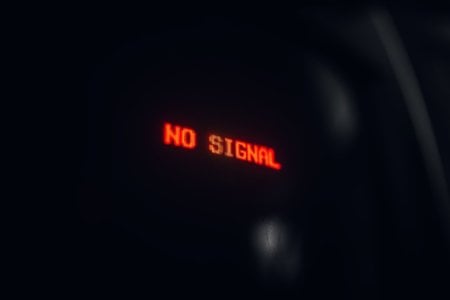Australia-wide Vodafone 3G shutdown to roll out this week; Optus and Telstra are next!
By
- Replies 7
The nation’s major telecommunications providers are set to start phasing out 3G within days, signalling the end of an era.
Vodafone will be the first to switch off 3G, rolling out the change on Friday.
Meanwhile, Telstra will shut off 3G in June, and Optus will say goodbye in September next year.
The majority of smartphones are already connected to 4G and 5G services, but there are still several devices that require an update, as even emergency triple-0 calls will no longer be available on devices using 3G services.
Some of the devices reliant on 3G services include medical monitoring devices, baby monitors, electronic funds transfer at point of sale (EFTPOS) machines, security cameras and smartwatches.
CareAlert Australia, a company that provides personal medical alarms, says some of their customers are reportedly being affected by the shutdown.
‘We were getting people calling us saying, “Hey, my light has turned off, what’s happened”,’ CareAlert Manager Darren Steele said before adding that some of their concerns are for elderly people who are still using the soon-to-be phased-out network.
Telstra’s NSW Regional General Manager Mike Marom said: 'It’s certainly really important to make sure that you make that change (to 4G or 5G) prior to June 2024.'
In 2003, the 3G network was welcomed by the world. It brought faster data rates, secure encryption algorithms, and efficient use of the radio bands it operates on.
But after 20 years, it's now been excelled by more advanced technology—as the internet demand drastically changes worldwide.
By re-purposing the radio frequencies from 3G to more advanced technology, providers can offer better service without needing to acquire new frequencies. It’s a process called 're-farming'.
‘We want to use the platform that 3G is on, and put that into our 4G and 5G networks,’ Marom said.
‘Rather than lose that frequency and that spectrum, we re-harvest it into our 4G and 5G network.’
Most likely, your device will be able to automatically shift to 4G if it’s compatible with that network. But if it did not configure by itself, you can try to manually replace it’s network service.
For example, Apple users can check this in Settings > Mobile > Mobile data options > Voice and data.
While Android users can check this in Settings > Network and Internet> Mobile network > Preferred network type.
Some devices might also need to support an additional feature called VoLTE, which operates on the frequencies you’re moving to.
Users can enable this in Settings > Mobile > Mobile data options > Select Enable 4G > Select Voice & data. If the setting is available, turn it on.
‘In some cases, though, devices may have been locked to a band and/or network—for example, our 3G network using 850 MHz spectrum,’ Telstra said.
If you’re unsure if your device is still reliant on 3G, then give your phone manufacturer a call. They might require your phone’s unique code—your IMEI code—which you can find by dialling *#06#.
However, if your device is proven dependent on a 3G network, you need to upgrade to access network capabilities, as this is important for things such as emergency calls and medical monitoring.
Aside from mobile phones, there are a number of other devices that will require an upgrade—and users are advised to contact the device manufacturers before it’s too late.
‘Anyone that has a medical monitoring device should check with their supplier to understand if they need to upgrade those devices,’ Marom said.
‘Merchants should check with their banks because a lot of the transaction machines out there are still 3G.’
Meanwhile, Optus revealed the top 25 devices that are potentially affected, you might want to look here to see if you have some of these devices.

What do you think of this story? Do you have devices that will be affected by the 3G shutdown? Let us know in the comments below!
Vodafone will be the first to switch off 3G, rolling out the change on Friday.
Meanwhile, Telstra will shut off 3G in June, and Optus will say goodbye in September next year.
The majority of smartphones are already connected to 4G and 5G services, but there are still several devices that require an update, as even emergency triple-0 calls will no longer be available on devices using 3G services.
Some of the devices reliant on 3G services include medical monitoring devices, baby monitors, electronic funds transfer at point of sale (EFTPOS) machines, security cameras and smartwatches.
CareAlert Australia, a company that provides personal medical alarms, says some of their customers are reportedly being affected by the shutdown.
‘We were getting people calling us saying, “Hey, my light has turned off, what’s happened”,’ CareAlert Manager Darren Steele said before adding that some of their concerns are for elderly people who are still using the soon-to-be phased-out network.
Telstra’s NSW Regional General Manager Mike Marom said: 'It’s certainly really important to make sure that you make that change (to 4G or 5G) prior to June 2024.'
In 2003, the 3G network was welcomed by the world. It brought faster data rates, secure encryption algorithms, and efficient use of the radio bands it operates on.
But after 20 years, it's now been excelled by more advanced technology—as the internet demand drastically changes worldwide.
By re-purposing the radio frequencies from 3G to more advanced technology, providers can offer better service without needing to acquire new frequencies. It’s a process called 're-farming'.
‘We want to use the platform that 3G is on, and put that into our 4G and 5G networks,’ Marom said.
‘Rather than lose that frequency and that spectrum, we re-harvest it into our 4G and 5G network.’
Most likely, your device will be able to automatically shift to 4G if it’s compatible with that network. But if it did not configure by itself, you can try to manually replace it’s network service.
For example, Apple users can check this in Settings > Mobile > Mobile data options > Voice and data.
While Android users can check this in Settings > Network and Internet> Mobile network > Preferred network type.
Some devices might also need to support an additional feature called VoLTE, which operates on the frequencies you’re moving to.
Users can enable this in Settings > Mobile > Mobile data options > Select Enable 4G > Select Voice & data. If the setting is available, turn it on.
‘In some cases, though, devices may have been locked to a band and/or network—for example, our 3G network using 850 MHz spectrum,’ Telstra said.
If you’re unsure if your device is still reliant on 3G, then give your phone manufacturer a call. They might require your phone’s unique code—your IMEI code—which you can find by dialling *#06#.
However, if your device is proven dependent on a 3G network, you need to upgrade to access network capabilities, as this is important for things such as emergency calls and medical monitoring.
Aside from mobile phones, there are a number of other devices that will require an upgrade—and users are advised to contact the device manufacturers before it’s too late.
‘Anyone that has a medical monitoring device should check with their supplier to understand if they need to upgrade those devices,’ Marom said.
‘Merchants should check with their banks because a lot of the transaction machines out there are still 3G.’
Meanwhile, Optus revealed the top 25 devices that are potentially affected, you might want to look here to see if you have some of these devices.
Key Takeaways
- Vodafone will be the first to switch off 3G this week, with Telstra following in June and Optus in September next year, impacting several devices still reliant on this technology.
- Medical monitoring devices, baby monitors, EFTPOS machines, security cameras, and smartwatches are some of the devices that might still be reliant on 3G, which even emergency triple-0 calls will not be possible on.
- The technical term for repurposing a specific mobile radio frequency band from one technology to another is called 're-farming' and this is what is happening as 3G is phased out to make room for more advanced 4G and 5G networks.
- If your device is 3G dependent, you will have to upgrade to access network capabilities. Users are advised to contact the device manufacturers if they are unsure whether their devices will be affected by the re-farming.
What do you think of this story? Do you have devices that will be affected by the 3G shutdown? Let us know in the comments below!








